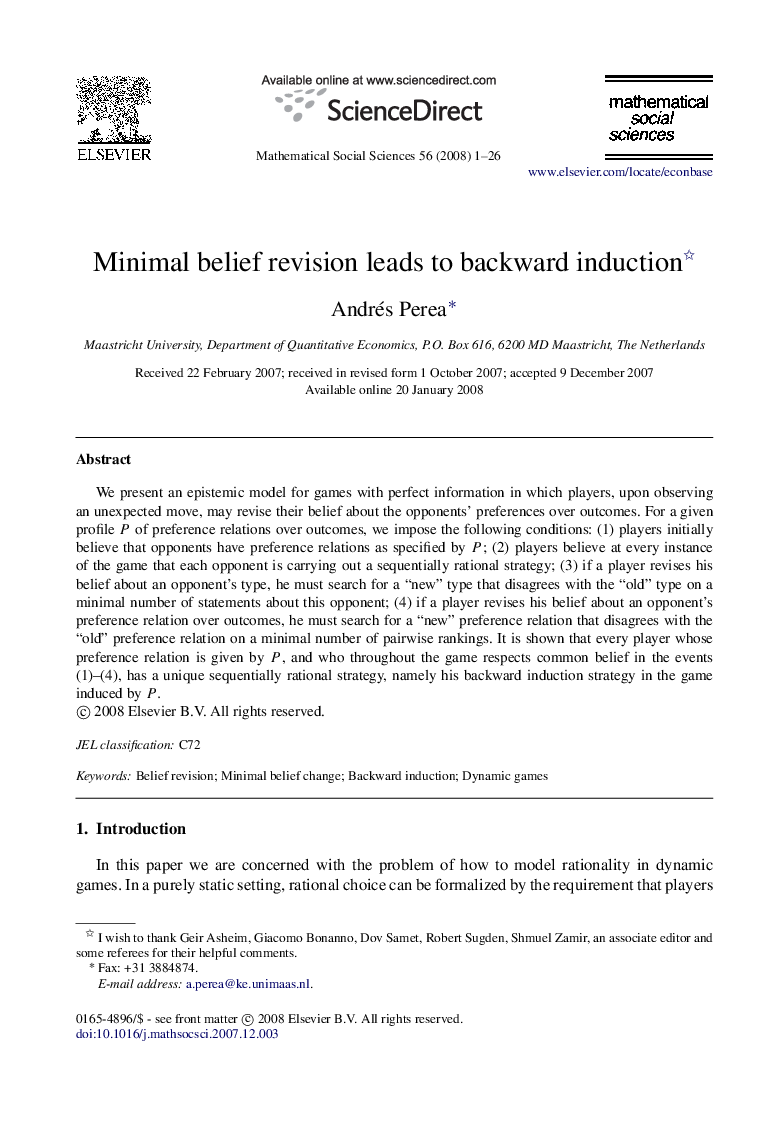| Article ID | Journal | Published Year | Pages | File Type |
|---|---|---|---|---|
| 973313 | Mathematical Social Sciences | 2008 | 26 Pages |
Abstract
We present an epistemic model for games with perfect information in which players, upon observing an unexpected move, may revise their belief about the opponents' preferences over outcomes. For a given profile P of preference relations over outcomes, we impose the following conditions: (1) players initially believe that opponents have preference relations as specified by P; (2) players believe at every instance of the game that each opponent is carrying out a sequentially rational strategy; (3) if a player revises his belief about an opponent's type, he must search for a “new” type that disagrees with the “old” type on a minimal number of statements about this opponent; (4) if a player revises his belief about an opponent's preference relation over outcomes, he must search for a “new” preference relation that disagrees with the “old” preference relation on a minimal number of pairwise rankings. It is shown that every player whose preference relation is given by P, and who throughout the game respects common belief in the events (1)-(4), has a unique sequentially rational strategy, namely his backward induction strategy in the game induced by P.
Related Topics
Physical Sciences and Engineering
Mathematics
Applied Mathematics
Authors
Andrés Perea,
